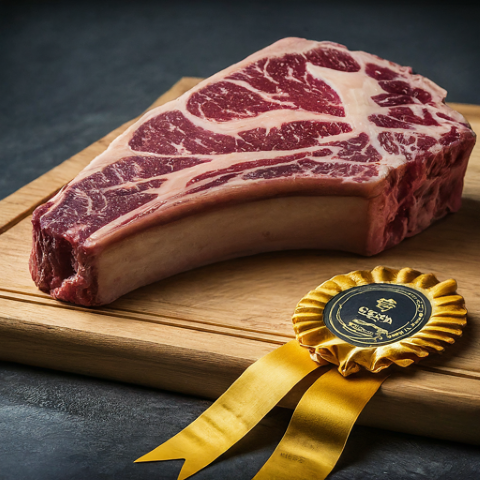Articles
The Importance of Show-Quality Livestock

March. 18, 2024, 10:33 AM PST
By: John Andresen
In the world of agriculture, where the rhythm of life follows the seasons and the land dictates the livelihoods of many, the pursuit of excellence is an age-old endeavor. Nowhere is this more evident than in the careful cultivation of show-quality livestock. Behind the glossy coats and proud stance of these animals lies a legacy of genetics that not only dazzle judges in the show ring but also hold the key to a more profitable future for ranchers worldwide.
In the world of agriculture, where the rhythm of life follows the seasons and the land dictates the livelihoods of many, the pursuit of excellence is an age-old endeavor. Nowhere is this more evident than in the careful cultivation of show-quality livestock. Behind the glossy coats and proud stance of these animals lies a legacy of genetics that not only dazzle judges in the show ring but also hold the key to a more profitable future for ranchers worldwide.
The Power of Good Genes
Livestock genetics play a crucial role in animal health, productivity, and overall efficiency. Animals with superior genes tend to:
- Less work. One of the most significant advantages of show-quality genetics is their inherent ability to produce offspring that are easier to maintain. Through meticulous breeding programs, breeders have honed in on traits that contribute to overall hardiness, disease resistance, and adaptability. This means that progeny born from show-quality stock often require less intensive care, resulting in reduced veterinary expenses and labor inputs for ranchers.
- Grow faster and have higher meat yields. Studies by the Roslin Institute (https://www.roslin.ed.ac.uk/) have shown that genetic selection can significantly increase growth rates in animals, leading to more efficient meat production.
- Be more resistant to diseases. Improved genetic diversity can lead to animals with stronger immune systems, reducing reliance on antibiotics and promoting animal welfare.
- Produce higher quality products. Milk from cows with specific genetics can have a higher butterfat content, while sheep with optimal genes can produce higher quality wool.
Be more resistant to diseases. Improved genetic diversity can lead to animals with stronger immune systems, reducing reliance on antibiotics and promoting animal welfare.
Produce higher quality products. Milk from cows with specific genetics can have a higher butterfat content, while sheep with optimal genes can produce higher quality wool
Moreover, the influence of show-quality genetics extends beyond individual operations, shaping entire breeds and driving progress within the industry. As breeders continue to push the boundaries of excellence, they contribute to a genetic reservoir that benefits all stakeholders, from commercial producers to hobbyists alike. This collaborative pursuit of perfection not only elevates the standard of livestock worldwide but also ensures the long-term viability of agriculture as a whole.
Genetic technologies like selective breeding and, more recently, gene editing, hold immense potential for further advancements in animal agriculture. However, responsible application is crucial to ensure animal welfare, ethical considerations, and consumer trust.
The legacy of high-quality livestock genetics is a testament to the power of selective breeding to transform not only individual animals but entire industries. By harnessing the potential of superior genetics, ranchers can mitigate risk, increase efficiency, and enhance profitability, paving the way for a more sustainable and prosperous future. Show rings, often seen as beauty pageants for animals, play a vital role in this process. They showcase the best examples of desired traits, ultimately contributing to a more efficient and successful livestock industry that benefits both consumers and the environment.
 Reg CF offering made available through Wefunder Inc. No broker-dealer or intermediary involved in offering.
Reg CF offering made available through Wefunder Inc. No broker-dealer or intermediary involved in offering.
This investment is speculative, illiquid, and involves a high degree of risk, including the possible loss of your entire investment.

